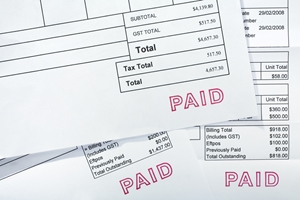
It may not feel particularly festive yet, but the Christmas season is just about starting, and it's really going to take hold over the next few weeks. While the period is typically a great time for business owners to celebrate a year of success, it can present a number of opportunities for increased profitability to entities that are savvy with finances.
The Australian obsession with Christmas
Here in Australia, our obsession with Christmas is just as pronounced as any other country around the globe. This is evidenced in the amount the population spends on gifts, food, and other festive favourites across the second half of November, through December, and into the January sales, too.
In fact, the joint findings of the Australian Retailers Association and Roy Morgan Research explained that Aussies are set to spend some $46.7 billion in retail stores this Christmas – around a 3.6 per cent increase on the same time last year.

So, what can enterprise owners do to best unlock the potential benefits this trend represents? Well, perhaps most importantly is getting small business accounting practices right. To that end, here are three things to keep in mind:
1. Understand company cash flow
WorkflowMax contributor Monica Shepherd surmised that it's important for small business owners to have a broad understanding of incomings and outgoings across the Christmas season. In doing so, it becomes easier to see the trends of what products, services and offerings are doing well, and allows the business to change its financial direction in line with customer interest.
Australian businesses are owed a staggering $26 billion in outstanding payments from customers.
2. Chase late payments
Taxpayers Australia combed through research from Intuit and Paypal and found that Australian businesses are owed a staggering $26 billion in outstanding payments from customers. Christmas is the perfect time to start correcting this trend.
Enterprise owners should consider chasing up late payments more aggressively as the festive season rolls around, as they can then ensure that their small business financial planning efforts are given a clean slate at the start of the New Year.
3. Getting tax right
While not directly related to consumer spending, there are a number of outgoings for small businesses to consider across the Christmas season. For example, the majority will be looking to throw a party for their staff.
The Accounting Hub contributor Andrew Millington explained that it's important to understand what could be tax deductible in this instance, and ensure that the business is maximising the money it spends on festive entertainment.
In this case, the nuances of taxation can often be difficult to keep track of, so small business owners should discuss things through with an applicable tax accountant where necessary.



